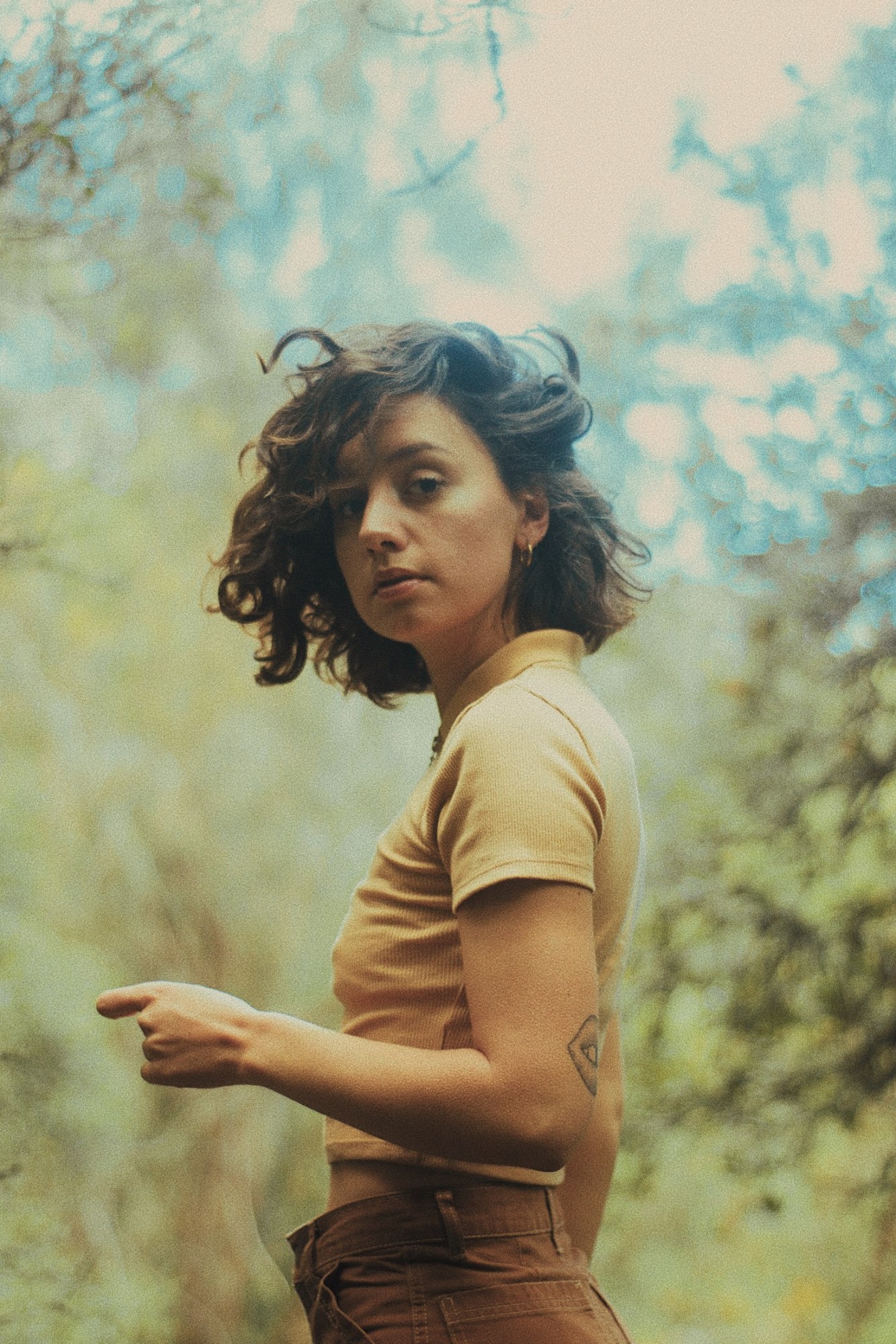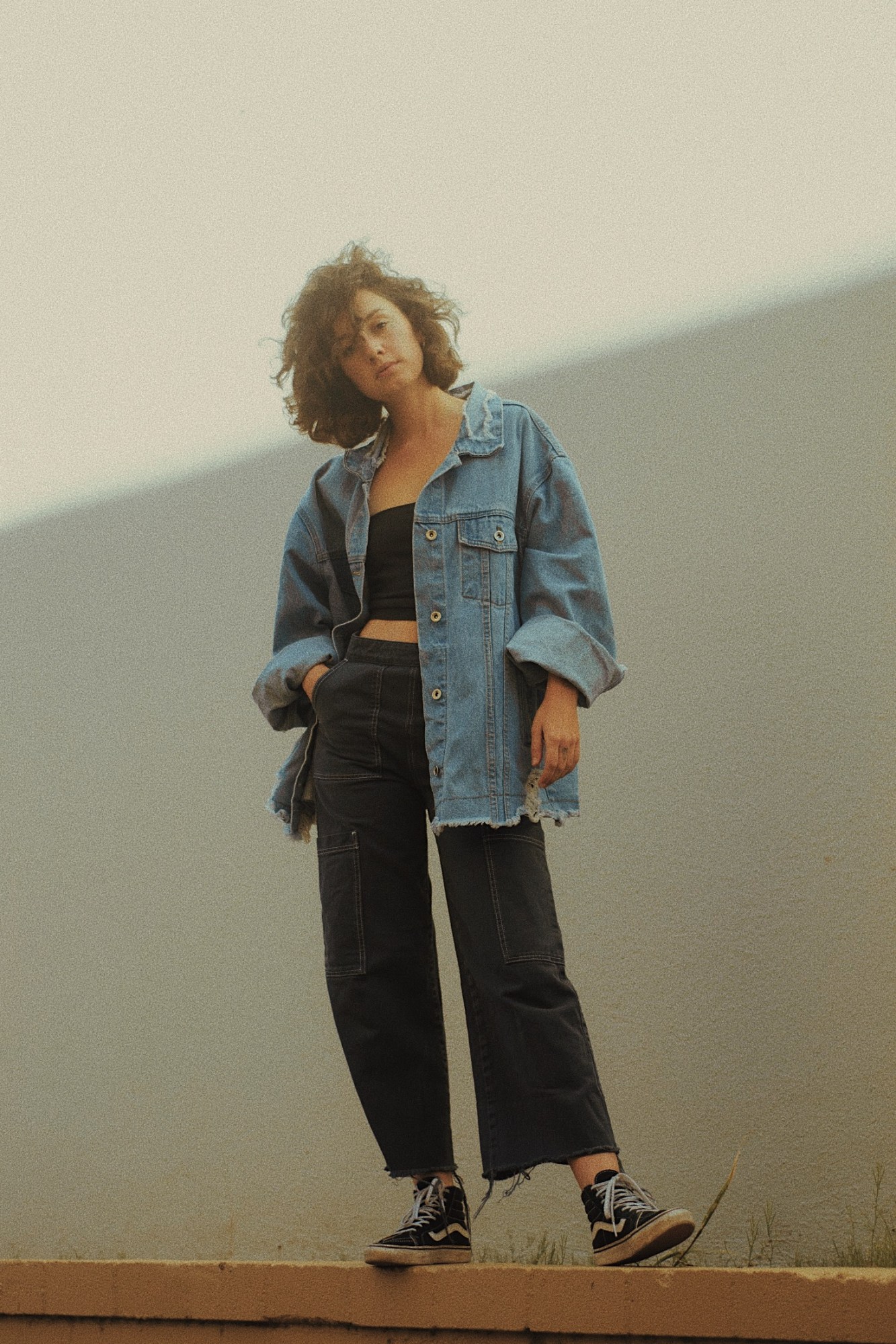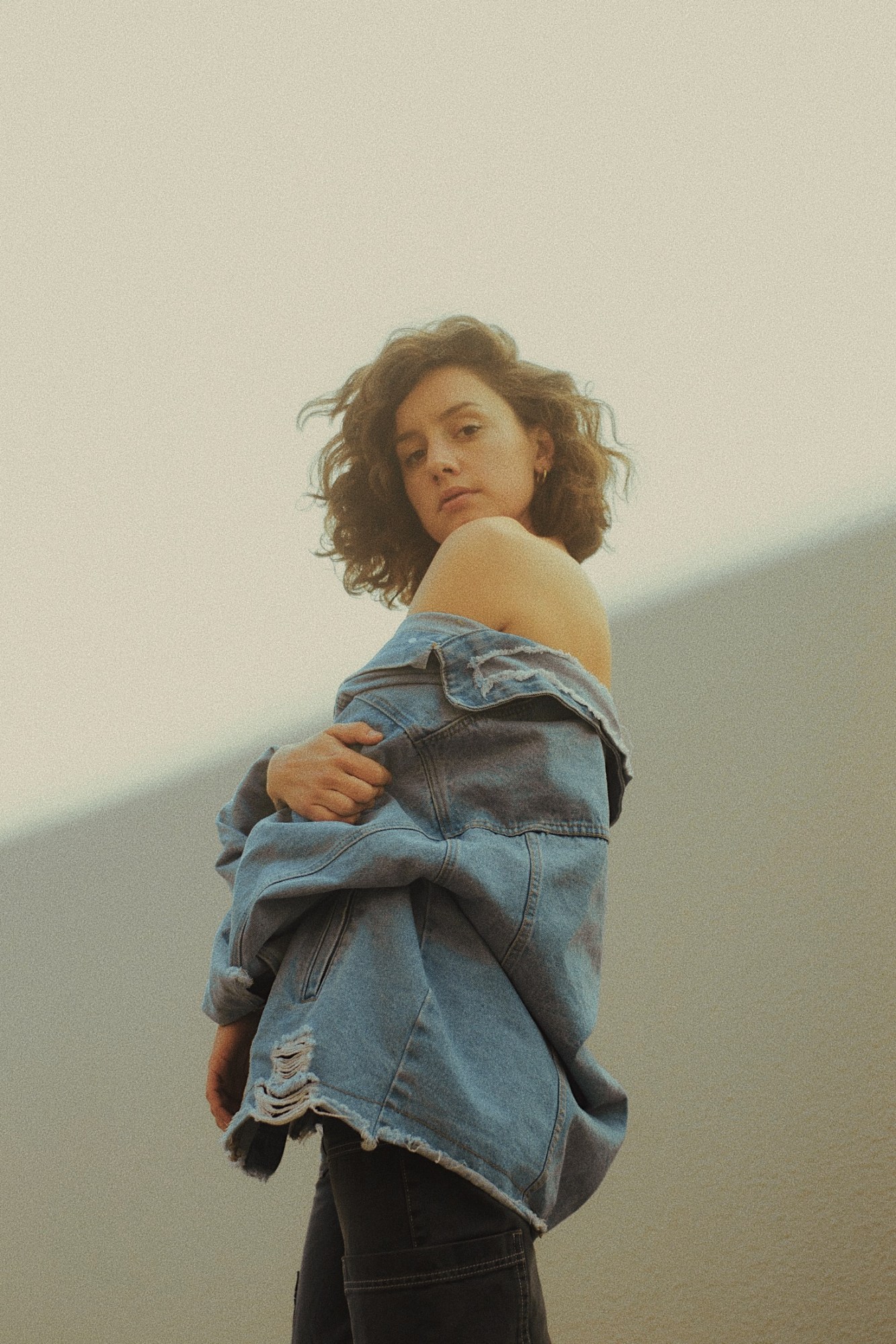It was a sweltering summer in Boston, and all the windows in Olivia Gatwood’s ground floor apartment were closed even though she didn’t have air conditioning. She was afraid that if she left them unlocked, a man would climb through her window and strangle her in bed. For months, she had been voraciously consuming true crime, wherein her very specific fears were validated. And growing up in Albuquerque, New Mexico, which has a crime rate 3.8 times higher than the national average, violence as a concept wasn’t anything new to her.
The sleepless nights she spent afraid in 2017 soon turned into questions about the reality of violence against women, and the way those crimes are portrayed in the media. She decided to explore the psyche of victimhood and feminism through personal stories of violence in her collection of poems, LIFE OF THE PARTY, published last year by Random House. Olivia’s work is unique in its unflinching directness. She conveys the experience of girls and young women by providing a voice for the fear that lives inside us all, and she isn’t afraid to be loud about it. One of her most notable poems, “Backpedal,” was adapted into a short film that premiered at Sundance in January.
Today, the 28-year-old writer lives in Santa Cruz. She has healed, as she says in her book, “while keeping some necessary part of [her] fear in tact.” In addition to writing, she hosts a podcast called “Say More” with fellow poet Melissa Lozada-Oliva, maintains a steady and active fanbase on social media, and occasionally teaches poetry at local correctional facilities. A book of children’s poems she wrote with Mahogany L. Browne and Elizabeth Acevedo, Woke: A Young Poet’s Call to Justice, will be published next month.
i-D spoke to Olivia about her experience with violence and success, social media’s role in poetry, and the way privilege factors into everything we do.

How has growing up in Albuquerque affected your view of violence, and the way you write about it?
I had an email exchange with someone the other day about something I’d said in an interview. I’d said, “That’s just Albuquerque,” when asked about the violence that my hometown so often faces. My explanation for why I’d said it at the time was that after leaving Albuquerque and making friends who didn’t grow up there, I realized my understanding of what was normal was often vastly different than my peers. When you lose a dozen friends to overdoses, drunk driving, gun and domestic violence before the age of 18, your relationship to these things doesn’t become normal, but it does become familiar, which I think is an important distinction. And as much as it’s familiar, I also firmly believe that violence in New Mexico is a result of systematic neglect, and should never be treated as “just the way things are”. So, I hope my writing communicates this distinction — what it means to not be shocked when something happens, but still be distraught. What that does to the psyche, especially of young people.
Your book LIFE OF THE PARTY calls attention to the erasure of women, particularly women of color, in the media through violence. How does your privilege as a white woman factor into the way you tell these stories?
Privilege factors into everything we do and feel, whether we want to see that or not. One of my main criticisms of the world of true crime was the fact that it didn’t feel like whiteness was called out enough and was instead being swallowed by the experience of being a woman. But being a woman isn’t universal, and the idea that white women are somehow only victims to violence and not also perpetrators is not only inaccurate, it’s deeply harmful. So, I wanted to reflect on my experience of feeling afraid of men, but I wanted to always hold this element of privilege parallel to that experience, to both hold myself and many of my readers accountable. Additionally, I think true crime perpetuates this kind of “stranger danger” ideology, which so often just translates to racism. It’s not even about complicating the narrative of violence against women, it’s about accepting the fact that it is already complex and not shying away from that for the sake of an easy story where there is a good person and a bad person. To me, that’s a better story anyway.
The short film Backpedal, directed by Dani Pearce and based on your poem of the same name, just had its premiere at Sundance. What was it like watching a poem you perform live get it’s own life on the screen?
It was surreal, the whole experience. When Dani reached out to me with a few examples of her work, I was blown away and couldn’t wait to see how she adapted this poem. We worked on the treatment together but the actual filmmaking was completely Dani and her team. “Backpedal” is very much not fictional (I say that because a lot of readers don’t read it that way), so to see my memories adapted by another person and given a life off the page was a really emotional experience. I could not have asked for a better filmmaker for this project.

How important is critical success to you? Do you ever think about how your work will be received as you’re writing it?
I think about how my work will be received all the time. It feels impossible not to, just given the internet and access and the fact that if I listen to the same Harry Styles song more than six times in a row, someone will tweet me asking if I’m okay. Maybe that’s a humble brag or maybe I’m humiliating myself, I don’t know. Success is important to me because writing is my work now. It’s my only source of income; it’s how I support myself and my family. So, if success means I will continue to be able to do that, then yes, I consider it very important. What I consider equally as important is integrity. I think the word “sellout” is used too frivolously, often as synonymous with an artist being well-known or celebrated, but I do hope to never sacrifice my own ethics or craft for the sake of money or popularity. Success will never be so important to me that I’ll throw my backbone for it.
Should social media have a place in poetry? How do you feel about Instagram poets?
I don’t think it’s as simple as whether or not social media “should” play a role in anything. There’s just Instagram and that’s the way things are now. Social media has made poetry so much more accessible — in the literal way, in that it is in our hands and available within seconds, as well as the social way, in that so many more voices have a platform to be uplifted and no longer have to rely on being selected by a gatekeeper to be heard. I have heard criticisms of that reek of teenage-girl hatred and anything that teenage girls like. But I also think so much of this work feels mass-produced, the authors are often difficult to differentiate, and the immediate value placed on it from follower count and likes feels like it might distract from an actual interest in the art form.
Your first novel, WHOEVER YOU ARE, HONEY is set to be released in 2022. What can you tell us about it?
I don’t know what I’m allowed to say, so I’ll say what’s already been said. It’s a story about a young woman who has recently made a transition into a wealthy community in Silicon Valley. She becomes obsessed with the couple next door from afar and is later invited to a dinner party at their house along with her boyfriend. Thematically, the book is about women’s hysteria, gaslighting, and what it means for a person to be constructed by the male gaze in the wake of technological advancements. Is that vague enough?
How has writing fiction differed from your experience writing poetry?
I truly cannot stress how opposite they are to me. Part of this is because I’ve been writing poetry for a very long time, and though obviously every poem is a different obstacle, I understand how to approach it with a sort of seasoned clarity. Fiction? No fucking way. I’m like, wait, so I have to get this person into the next room so they can do this thing, but does this thing they wanna do make sense with their personality? How do people speak in a way that doesn’t sound like an episode of Gilmore Girls? How many more ways can I describe the weather? I have so much respect for novelists. Their understanding of humanity is next-level and their commitment to word count is borderline unhealthy. I am having so much fun and learning something new every time I write. And also every time I read a chapter, I am reminded that I have absolutely no idea what the fuck I’m doing.


